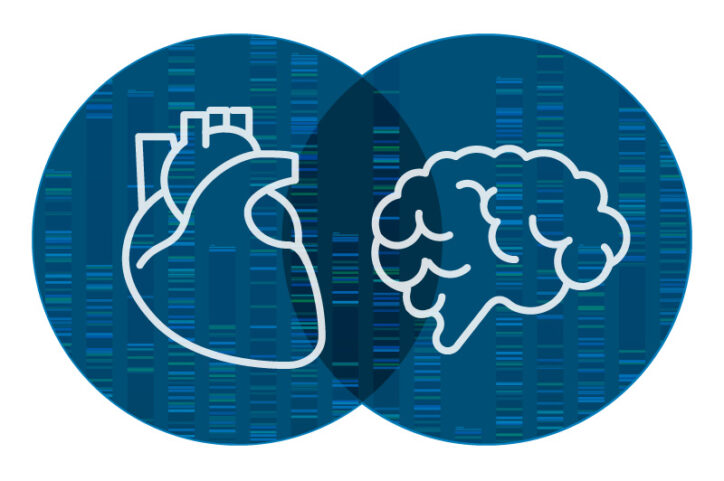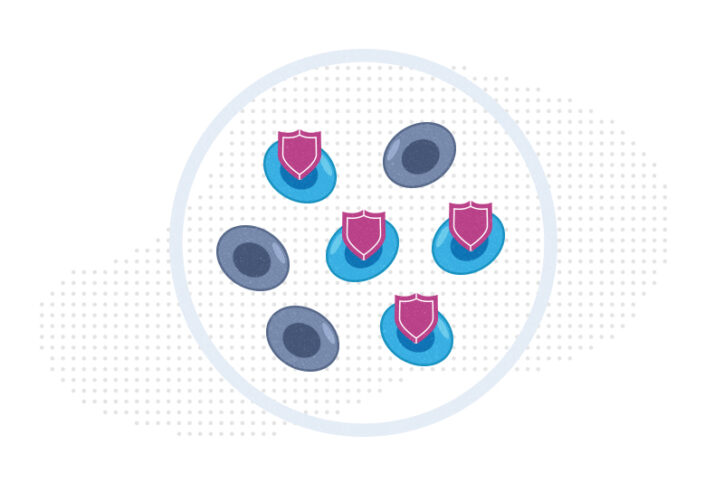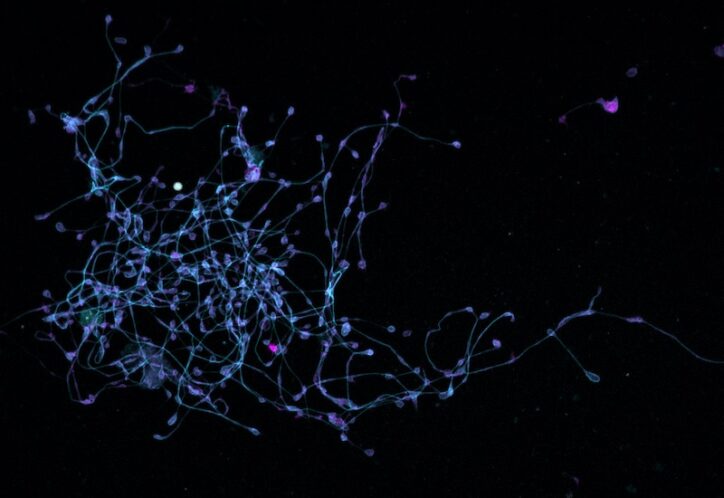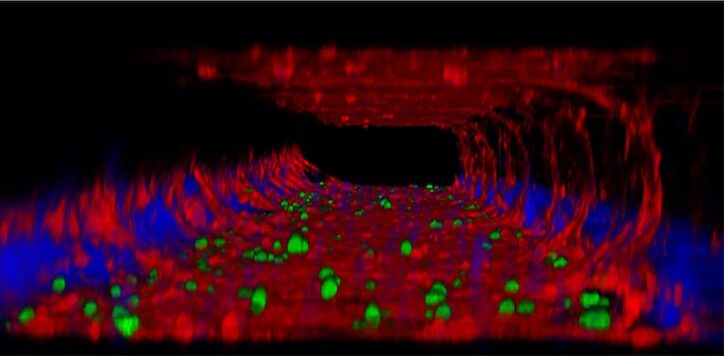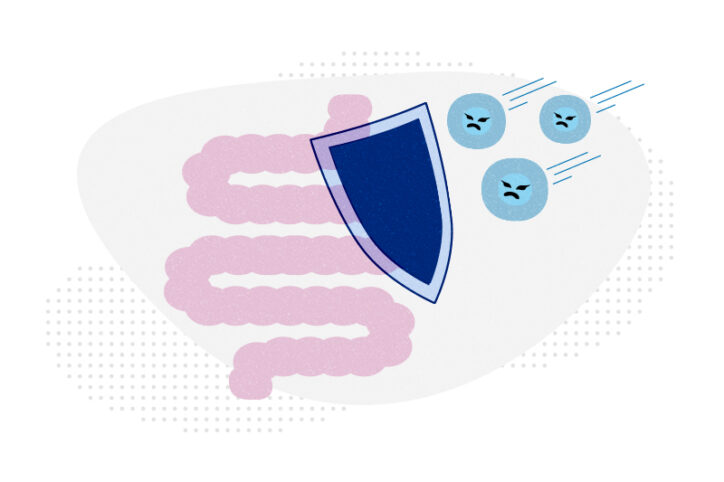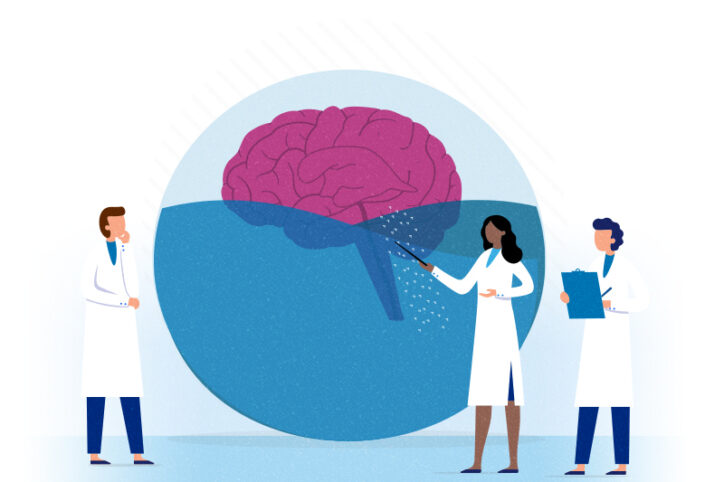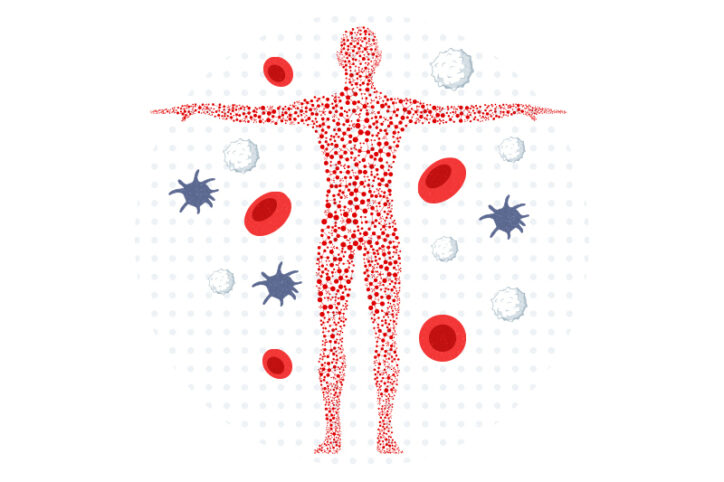Research aims to pinpoint genetic connection between autism and heart disease
Cardiology and neurodevelopmental researchers have more questions than answers about the possible genetic links between congenital heart disease (CHD) and autism spectrum disorder (ASD). A study that’s underway at Boston Children’s aims to pin down those elusive answers by taking a close look at the genetics of children with neurodevelopment and cardiovascular conditions. The researchers want to see ... Read More about Research aims to pinpoint genetic connection between autism and heart disease
Making immunotherapy safe for AML
Acute myeloid leukemia (AML), the second most common leukemia in children, is hard to treat and has a five-year survival rate of just 65 to 70 percent, according to the American Cancer Society. While immunotherapies like monoclonal antibodies or CAR T-cell therapy are effective for certain blood cancers, they have not been possible in AML ... Read More about Making immunotherapy safe for AML
Could the right dietary fat help boost platelet counts?
Aside from transfusions, there currently is no way to boost people’s platelet counts, leaving them at risk for uncontrolled bleeding. Could something as simple as a dietary change raise platelet counts in people with low levels, such as cancer patients receiving chemotherapy? New science out of the lab suggests that the answer might be yes. ... Read More about Could the right dietary fat help boost platelet counts?
Nanobodies from alpacas could steer immune attacks on influenza
While conventional flu vaccines are designed to anticipate the influenza strains projected to dominate in the next flu season, they’re only partially effective. And while antiviral drugs are available to treat active flu cases, the body quickly clears them, requiring high, frequent doses. Coupling one existing flu drug with a special ingredient from alpacas, the ... Read More about Nanobodies from alpacas could steer immune attacks on influenza
Zika study reveals how infection can cause microcephaly
Prenatal exposure to viruses capable of infecting the fetal brain, particularly in the first trimester, can cause a range of developmental defects in the baby. The Zika epidemic in Brazil during 2015-2016 posed an extreme case, causing hundreds of babies to be born with microcephaly, or an abnormally small head. Although cases have waned significantly, ... Read More about Zika study reveals how infection can cause microcephaly
Tackling an aggressive, treatment-resistant lymphoma where it lives
Anaplastic large cell lymphoma, a form of non-Hodgkin lymphoma, is the most common aggressive lymphoma in children. Chemotherapy and radiation fail to cure about 30 percent of cases. When tumors are driven by the oncogene ALK — which is the case for the majority of children — kinase inhibitor drugs like crizotinib are very effective ... Read More about Tackling an aggressive, treatment-resistant lymphoma where it lives
One-time treatment could block a deadly form of graft-versus-host disease
Even when a bone marrow transplant cures leukemia or lymphoma, patients can still pass away from graft-versus-host disease (GVHD), in which T cells in the donor graft attack the recipient’s own tissues. Leslie Kean, MD, PhD, director of stem cell transplant at Dana-Farber/Boston Children’s Cancer and Blood Disorders Center, has long sought to prevent this ... Read More about One-time treatment could block a deadly form of graft-versus-host disease
Facial weakness: A dark matter detective story
Elizabeth Engle, MD, has devoted her career to finding genetic and developmental causes for disorders of eye, eyelid, and facial movement. From common conditions like strabismus to very rare disorders, these conditions can impact a person’s appearance and impair social communication, making it hard to shift one’s eyes up, down, or sideways or adjust facial expressions. Each ... Read More about Facial weakness: A dark matter detective story
Another angle on Alzheimer’s: CSF, proteomics, and metabolic enzymes
Currently there are no objective, easily assessed diagnostic markers for Alzheimer’s disease, and no good therapeutic options. Taking an agnostic approach, proteomics expert Hanno Steen, PhD, and neurobiologist Judith Steen, PhD, who share a lab at Boston Children’s Hospital, teamed up to analyze proteomics data from the cerebrospinal fluid (CSF) that bathes the brain, combining ... Read More about Another angle on Alzheimer’s: CSF, proteomics, and metabolic enzymes
Could we make blood anywhere in the body?
Our bodies make blood in a specialized niche — a “nursery” within our bone marrow that nurtures blood stem cells so they can replicate and make different kinds of blood cells. The lab of Leonard Zon, MD, has even shown how blood stem cells, once they settle in the niche, are “cuddled” by nearby cells. ... Read More about Could we make blood anywhere in the body?


